Gunbuster references in Nadia
It's no secret that Studio Gainax likes to hide references to other anime in their shows, with varying degrees of subtlety. But perhaps the most interesting are the parallels between their first OVA series, Gunbuster, and their first TV series Fushigi no Umi no Nadia.
Though appearing very different in tone, setting, and target audience, the two series actually end up sharing a lot of similarities. Gunbuster is a mature sci-fi space opera along the lines of Space Battleship Yamato and Mobile Suit Gundam, while Nadia is a steampunk adventure loosely based on Jules Verne's Twenty Thousand Leagues Under the Seas and aimed at younger audiences. But they share a lot of common themes and plot points. They're also both written and directed by Hideaki Anno, who would go on to make the legendary Neon Genesis Evangelion.
Reused names
A lot of little things in Nadia, like names of minor locations, are taken directly from Gunbuster.
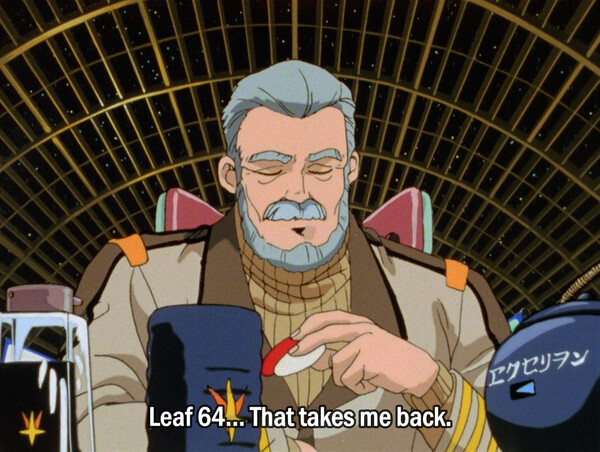
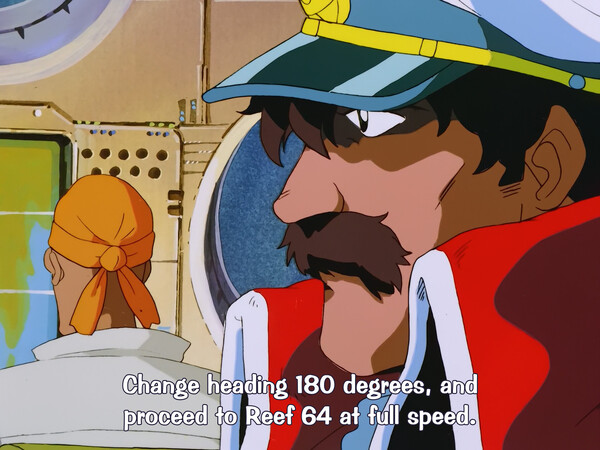
Not to mention the fact that both captain characters have cool moustaches, which itself may be a reference to Captain Global of Super Dimension Fortress Macross.
The Exelion and Nautilus share a lot of similarities too, even the location of their combat shelters.
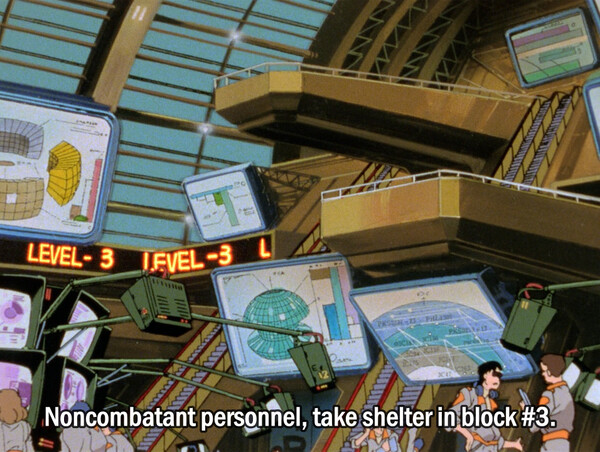
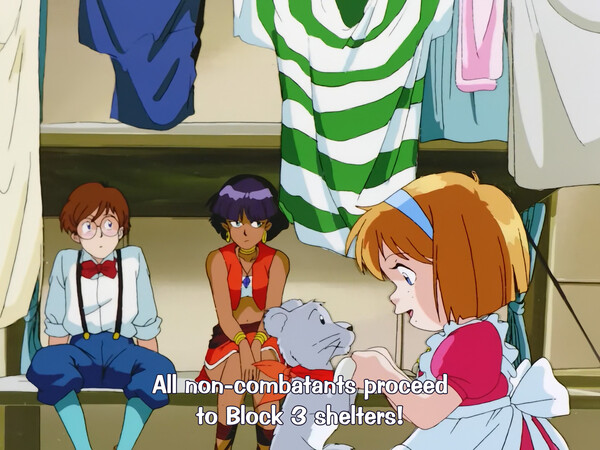
The Nautilus and New Nautilus originally had the same names as the two main ships from Gunbuster as well:
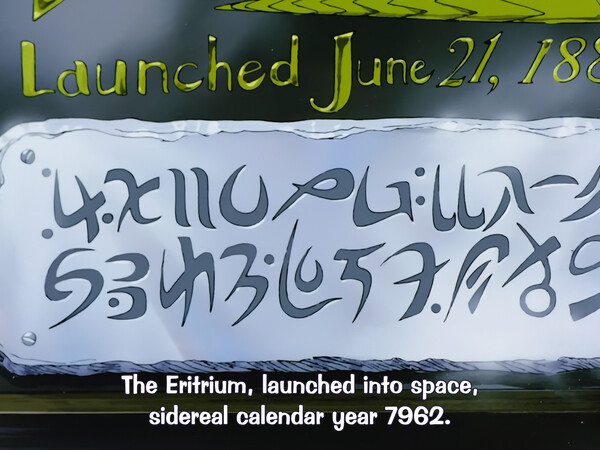
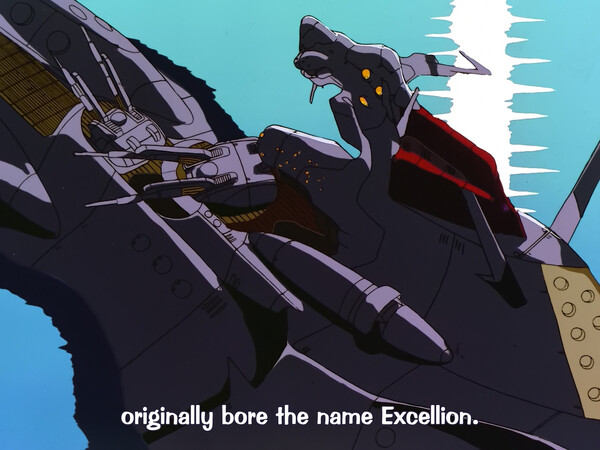
Reused shots
Hideaki Anno has a very distinctive visual style, and often reuses similar types of shots within the same show, or even across different shows. Here's an obvious example:
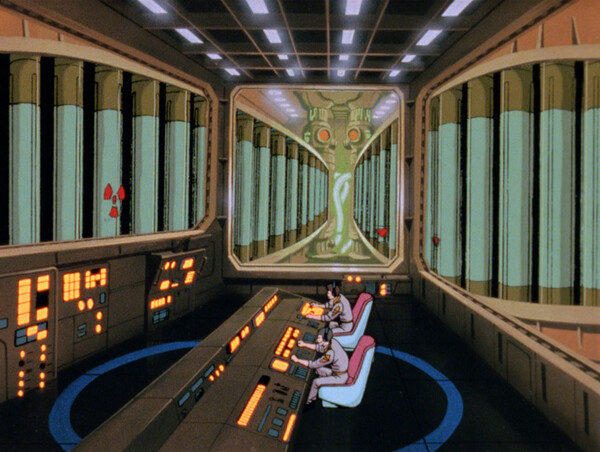
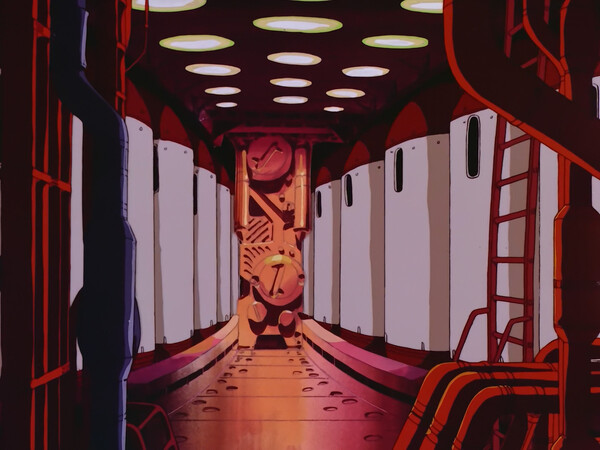
Sometimes it went beyond just reusing a shot's framing, there are a few instances where entire shots are reused with only slight modification.
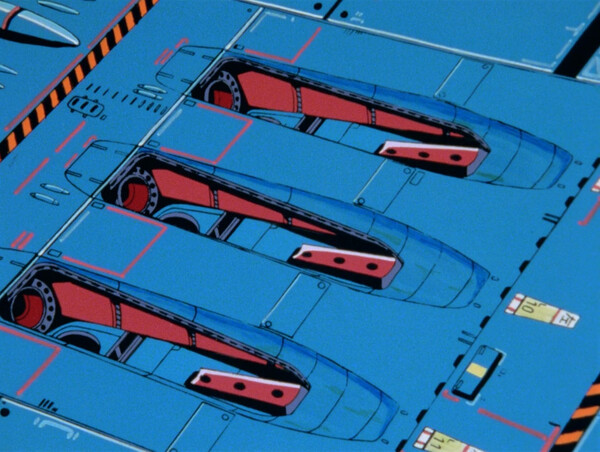
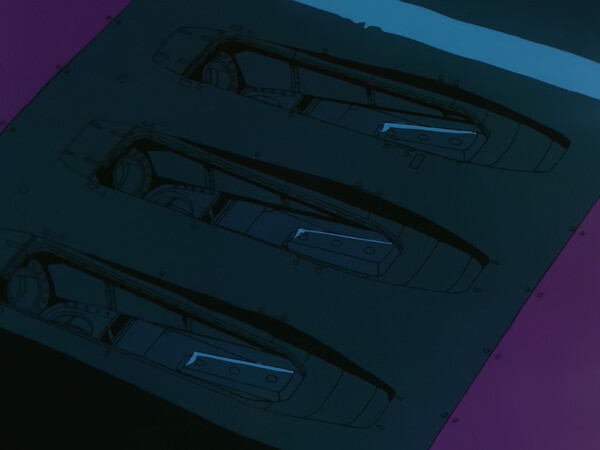
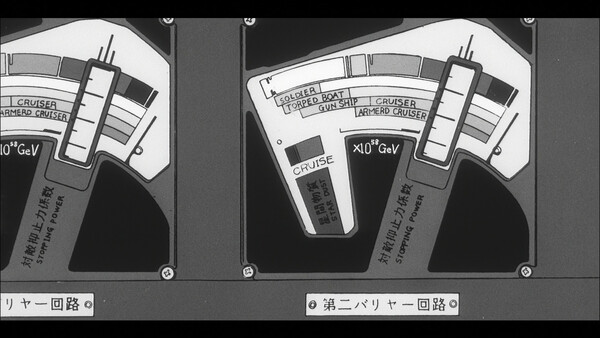
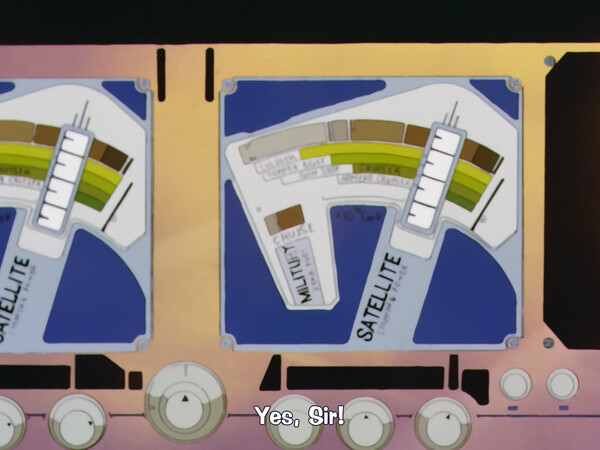
Bonus
There are plenty of Nadia references hiding in later Gainax works too. One of my favorites is the gross-looking fish that reappeared 17 years later in Gurren Lagann.
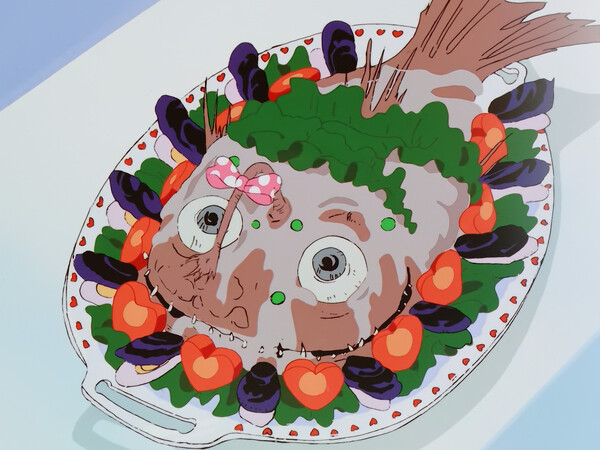
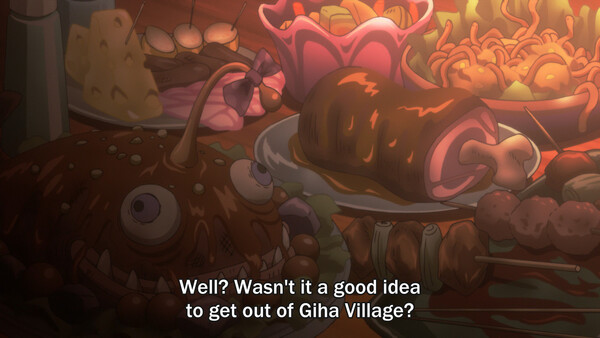
There's even a musical reference in Evangelion 3.0. The music that plays when the Wunder launches for the first time is almost exactly the same track used in Nadia for the first launch of the New Nautilus. Shirō Sagisu composed the music for both.